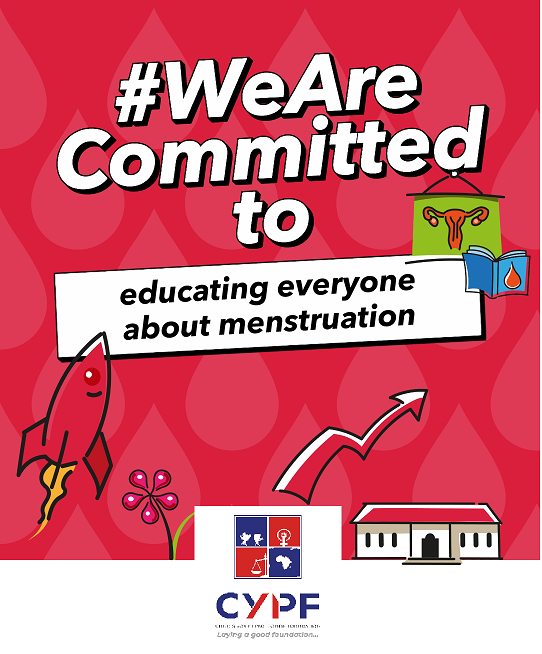- Some importance of having access to affordable and quality menstrual hygiene products include:
1. Health and Hygiene: Access to menstrual hygiene products enables individuals to manage their periods hygienically, reducing the risk of infections and other health complications. Using clean and appropriate menstrual products helps maintain genital hygiene and prevents the spread of diseases.
2. Dignity and Comfort: Menstruation is a natural bodily process, and individuals should be able to manage it with dignity and comfort. Access to menstrual products allows menstruating individuals to go about their daily activities without discomfort or embarrassment, promoting confidence and well-being.
3. Education and Workforce Participation: Lack of access to menstrual hygiene products can lead to missed school or work days, hindering educational attainment and economic participation. By ensuring access to affordable menstrual products, we can support girls’ education and empower women to participate fully in the workforce.
4. Gender Equality: Access to menstrual hygiene products is essential for promoting gender equality. Inadequate access disproportionately affects girls and women, exacerbating existing inequalities and hindering their ability to reach their full potential. Ensuring equal access to menstrual products is a step towards breaking down barriers and advancing gender equity.
Social Justice: Menstrual health is a matter of social justice. Everyone, regardless of socioeconomic status, should have access to the resources needed to manage their periods safely and comfortably. Lack of access to menstrual products can further marginalize already vulnerable populations, perpetuating cycles of poverty and inequality.
Social stigma and taboos surrounding menstruation persist in many cultures around the world, negatively impacting the lives of millions of women and girls. These taboos manifest in various forms and have profound implications for individuals’ physical and mental health, as well as their social and economic status. Some issues surrounding this includes:
1. Cultural Beliefs and Traditions: In many societies, menstruation is surrounded by myths, superstitions, and cultural beliefs that view it as impure, dirty, or even dangerous. These beliefs often stem from religious teachings, historical practices, or traditional customs that have been passed down through generations.
2. Silence and Shame: Menstruation is often shrouded in silence and secrecy, with many women and girls feeling ashamed or embarrassed to discuss it openly. This silence perpetuates stigma by reinforcing the notion that menstruation is something to be hidden or ashamed of.
3. Restricted Access to Information: Due to the stigma surrounding menstruation, many girls grow up with limited access to accurate information about menstrual health and hygiene. This lack of education can lead to misconceptions, fear, and anxiety about menstruation, further perpetuating stigma.
4. Social Exclusion and Discrimination: In some cultures, menstruating individuals may face social exclusion or discrimination during their menstrual periods. They may be prohibited from participating in religious activities, entering certain spaces, or engaging in social interactions, leading to feelings of isolation and marginalization.
MENSTRUAL HYGIENE
Menstrual hygiene refers to the practices and behaviors aimed at maintaining cleanliness and managing menstruation in a safe and healthy manner. It involves using appropriate menstrual products, practicing good personal hygiene, and ensuring proper disposal of menstrual waste. Some importance of menstrual hygiene include :
1. Prevention of Infections: Proper menstrual hygiene helps prevent infections such as urinary tract infections (UTIs), bacterial vaginosis, and yeast infections. Keeping menstrual products clean and changing them regularly reduces the risk of bacterial growth and associated health issues.
2. Promotion of Reproductive Health: Good menstrual hygiene contributes to overall reproductive health by ensuring that menstruating individuals can manage their periods without experiencing discomfort or health complications. It allows individuals to maintain regular activities and reduces the impact of menstruation on daily life.
3. Enhancement of Dignity and Comfort: Maintaining good menstrual hygiene promotes dignity and comfort for menstruating individuals. Access to clean and appropriate menstrual products, as well as facilities for washing and disposal, allows individuals to manage their periods with confidence and without embarrassment.
4. Reduction of Stigma and Taboos: Open discussion and education about menstrual hygiene help dispel myths, stigma, and taboos surrounding menstruation. By normalizing menstruation and promoting understanding, individuals are more likely to seek support and access necessary resources for managing their periods effectively.
5. Improvement of School and Work Attendance: Adequate menstrual hygiene management enables girls and women to attend school, work, and other activities without interruption due to menstruation-related issues. This contributes to educational attainment, economic participation, and social inclusion.
6. Environmental Sustainability: Adopting sustainable menstrual hygiene practices, such as using reusable menstrual products and eco-friendly disposal methods, reduces the environmental impact of menstruation by minimizing waste and reducing the consumption of resources.



